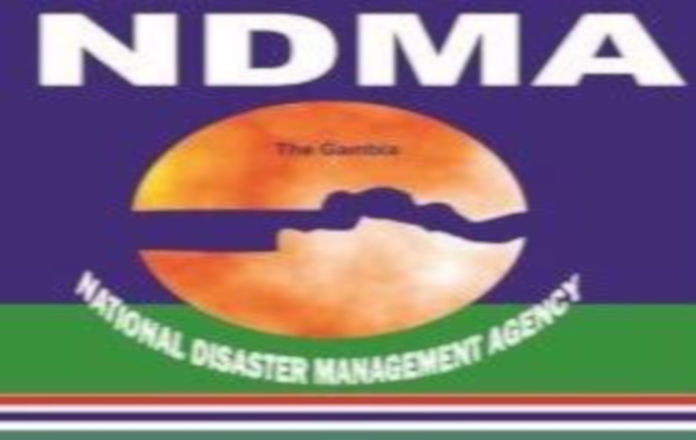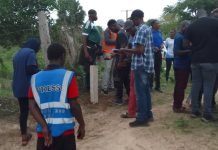By Madiba Singhateh
The Director of the National Disaster Management Agency Sanna Dahaba has said The Gambia is set to develop a National Oil Spill Contingency and Response Plan that aims to complement the Gambia Multi-hazard National Contingency Plan 2022-2025 implementation plan, to address emerging disaster hazards.
The NDMA Director made this disclosure in a five-day convergence with the National Maritime Organisation in partnership with the International Maritime Organisation (IMO), the Global Initiative for West, Central, and South Africa (GI-WACAF), and local stakeholders to develop the country’s contingency plan on oil spillage, held yesterday Monday, September 11 at a local hotel in Kololi.
“It is with delight that we conduct this milestone training and development on the National Oil Spill Response Plan for the country, the first of its kind in NDMA history,” Director Dahaba.
He added: “The plan will complement the Gambia Multi-hazard National Contingency Plan 2022-2025 implementation plan, to address emerging hazards and menace for the country.”
Since the Gambia is a signatory to the OPRC 1990 convention, according to the GMA, it is obligatory for the country to develop a National Oil Spill Contingency Plan as required by Article 6 of the convention, to strengthen a national system for preparedness and response in case of an oil spill in accordance with the provisions set out in the International Convention on Oil Pollution Preparedness, Response and Cooperation of 1990 (OPRC 90).
Director Dahaba said Gambia’s interest in oil exploration is increasing coupled with the proliferation of petroleum products in the country, but noted that the country’s exposure and vulnerability are increasing because of pollution and the threats they pose to the ecosystem.
He said the NDMA and the GMA have consulted and worked with all institutions, including the GIWACAF team to formulate the contingency plan. Dahaba said these efforts are significant in the formulation of an effective disaster management and risk reduction framework through a multi-hazards approach.
Speaking at the gathering, the permanent secretary at the Ministry of Trade, Works, and Infrastructure, Louise Moses Mendy, said the development of a National Oil spill contingency and Response Plan for the Gambia has been a major concern for the Gambia Maritime Administration and stakeholders over years, but it became more pressing following Gambia’s ratification of the OPRC’s 1990 convention in 2019. He said the convention now becomes binding on the Gambia and Article 6 requires that the national contingencies in response to oil pollution, be put in place.
“This workshop is a follow-up to the kickoff mission in April and a technical consultation and site assessment follow-up. At the end of the workshop, you will not only develop your capacity in oil spill response techniques, but the Gambia will inch closer to acquiring a response plan with benchmarks to international best practice,” he said.
Speaking further, he said spills involving heavy oils pose serious environmental threats with far-reaching economic, social, and health implications on coastal states.
“Depending on their magnitude, they have potentially destroyed livelihoods and the environment in vast areas and have sometimes spread across borders. The minor oil spill incident and accident at Mandinaring in May 2022, is an opening experience for the Gambia. The spill although minor, has overwhelmed the collective synergies of the concerned institution during the cleanup exercise, and preparedness is vital and very often a major determinant in the outcome of oil spill response measures,” he said.
Also speaking on the occasion was Ms Anaïs Guilou, the project coordinator.





















